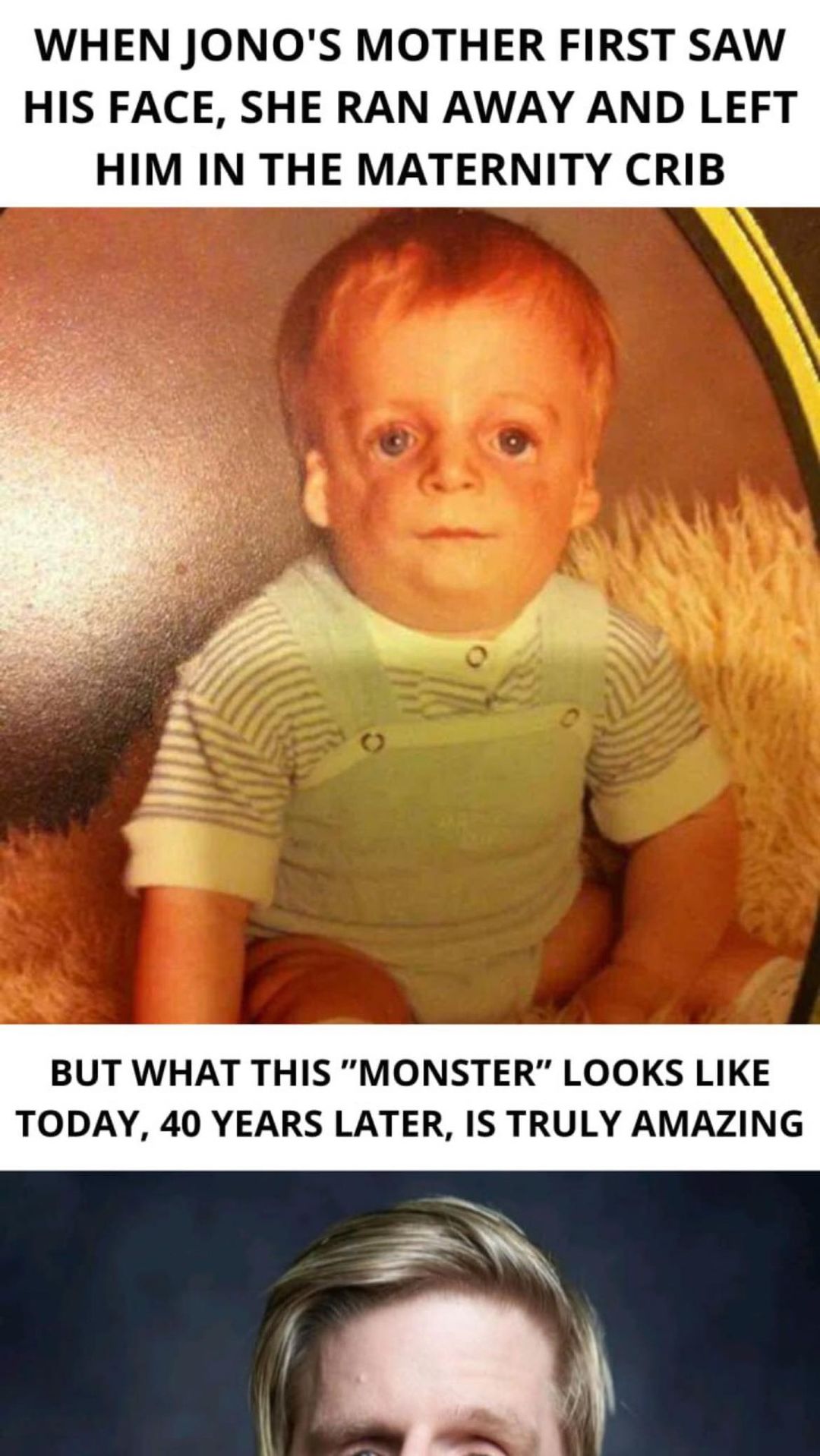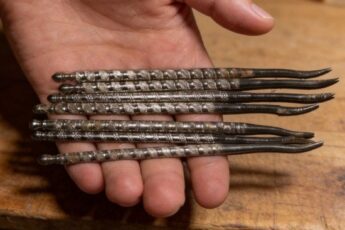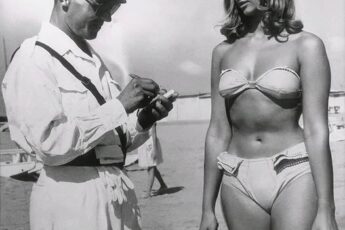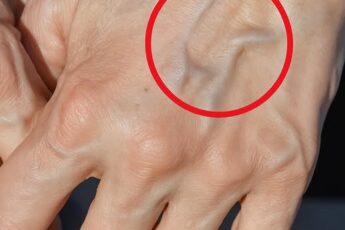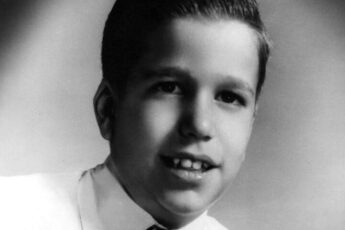
We live in a society where success is measured by how far you can get ahead while trying to blend in. If you don’t conform or stand out in some way, you’re often labeled as “odd” or “abnormal.”It’s a discouraging perspective on life, one that places too much importance on appearances and comparisons to others.
Take Jono Lancaster, for example—a person made of flesh and blood just like everyone else, yet who has often faced the harsh reality of how unkind the world can be.
Jono Lancaster was born in England in October 1985, but he didn’t look like the other babies in the hospital.
The little boy was diagnosed with Treacher Collins syndrome, a rare genetic condition that caused his facial bones to develop asymmetrically.
After the diagnosis, doctors informed Jono’s parents that he would likely never walk or speak. The news was overwhelming for his parents, who ultimately abandoned him.
“When I was born, my parents were in total shock. I was out of the hospital 36 hours after I was born. Social services found someone to look after me. The foster carer was a lady called Jean,” Jono shared at the 2015 Nord Conference.
When Jono was less than two days old, his parents gave him up for adoption and vanished. The hospital reached out to Social Services, and a kind woman named Jean Lancaster stepped in to raise him.
Jean wasn’t startled or frightened when she saw the baby. Instead, she immediately bonded with him, picking him up and asking the nurse, “When can I take him home?”
From the very beginning, his foster mother provided the love and care that every child deserves, and Jono couldn’t have asked for a more devoted and loving mom.
However, despite the unwavering support from his mother, Jono’s early years were marked by a lack of understanding from the outside world.
When Jono started school, he became more aware of himself and quickly realized that he looked different from his classmates.
“I kind of felt like I was on my own and I felt like I was the only one out in the world that was like me. People are lucky enough to win the lottery or they become professional footballers, doctors, lawyers but I thought, ‘Why did I have to end up looking like this?’” Jono shared in an interview with Adelaide Now.
It’s important to note that Treacher Collins syndrome doesn’t affect a child’s intelligence in any way. What mattered most to Jono’s classmates, however, was his appearance. They would often run away from him and make faces, saying they didn’t want to “catch his disease.”
“I used to hide how unhappy I was from my mom. She had already done so much for me,” Jono shared in an interview with the BBC.
Despite the challenges, Jono refused to give up or let the negativity from others define him, and he had the support of a remarkable woman by his side.
Jono’s foster mother, Jean, made efforts to reconnect him with his biological parents. However, after her letters were returned for five consecutive years, she decided to take the next step and officially adopted Jono on May 18, 1990.
“So I get two birthdays! I used to tell other kids that my mom went to the hospital and she looked at all the babies and she chose me, whereas their parents had been stuck with them,” Jono shared at the 2015 Nord Conference.
Jono will always cherish his foster mom, something he made clear in a heartfelt Facebook post from 2015.
”This lady may be a little short in height, but this lady has the biggest heart out of every one I’ve ever met. This lady has been a foster carer for 30 years, she loves and has given herself to so many. This lady cried every time a child moved onto another foster home as she felt somehow she had failed them. This lady despite been a single mom in her 40’s took me on despite not knowing what the future held. This lady adopted me and along with Claire and Stephen gave me an amazing family. This lady is an angel, sent to me when I needed one the most.
This angel’s name is Jean, my mum, my hero.”
As a teenager, Jono became increasingly rebellious. At times, he would act out just to get attention, using it as a way to distract others from his physical appearance. He drank heavily and even tried bribing people with sweets in an effort to make them like him.
“I was feeling so alone.”
However, with the love and support of Jean, along with his own inner strength, Jono eventually decided to turn his life around and use his experiences to make a positive impact on others.
Now 36, Jono dedicates his life to helping people with Treacher Collins syndrome worldwide. He also works as a team leader for adults with autism.
Jono meets with children, offering them hope and support while speaking to their parents about their experiences. He currently works as an inspirational speaker and educator, frequently sharing his story and raising awareness about Treacher Collins syndrome.
“My parents still want nothing to do with me,” he admits. “What’s changed is my attitude, and that’s what’s so powerful. […] I wouldn’t change any of it. My attitude was more disabling than anything. With the right attitude, you can achieve anything.”
One of Jono’s mentees is two-year-old Zackary Walton from Australia.
Despite his young age, Zackary has already faced bullying. But with Jono by his side, Zackary has found a lifelong friend.
“When he said he was coming to Australia, we knew we had to meet him, and it’s made us so happy to see Zack meet someone like him,” said Zackary’s mother, Sarah Walton, in an interview with Adelaide Now.
When Jono and Zackary met for the first time in November 2014, a picture from that moment was shared on Facebook — a truly heartwarming image to witness.
In 2015, Jono met Laura Richardson while working as a fitness instructor.
They quickly fell in love, and Laura wholeheartedly accepted Jono and his condition. She saw him for who he truly was, and together they worked to spread positivity and bring smiles to those around them.
Before meeting Laura, Jono had always thought he would turn to adoption if he ever wanted to have children and start a family.
“I’ve always dreamed of being a daddy. I crave father and son moments – my adoptive mum was absolutely amazing but I never had a father figure in my life, and that’s something I really, really want. I want to do the school run, take my child to dance, gymnastics or football – whatever they want,” Jono shared in a 2011 interview with the BBC.
According to Jono, any child he fathers has a 50% chance of inheriting Treacher Collins syndrome. The thought of having a child of his own brought about a wave of emotions, moral dilemmas, and self-reflection. While Jono himself was born relatively healthy, many children with Treacher Collins face severe medical challenges, with some even born unable to breathe.
This made Jono consider that adoption might be the best route.
”It worked really well for me, and giving a child a second chance, I think that’s brilliant. But Laura thinks she will have those instincts of really wanting to carry a child, and she’s worried that she might find it hard to look after someone else’s child – or that the child will just want to find its natural parents,” Jono explained. He continued:
”Plus she really wants our child to be ‘our’ child. And I really want to look after her when she is pregnant, for her to be on the sofa, or for me to run downstairs at 2am when she fancies a pickle.”
Sadly, Laura and Jono never had children. After ten years together, they made the difficult decision to part ways and move forward separately. Jono shared the news on Instagram, explaining:
“Myself and Laura shared 10 amazing years together, and we decided to go our separate ways as we weren’t growing together as a couple. Nothing but mutual respect there, and it had nothing to do with appearance.”
Many of Jono’s followers expressed sympathy and tried to focus on the positive, encouraging him that something good could emerge from a broken relationship.
“I don’t think breakups can ever be spun into sounding good. It was heartbreaking,” Jono responded.
You can hear Jono tell his story in the video below. I promise it will leave a lasting impact.
